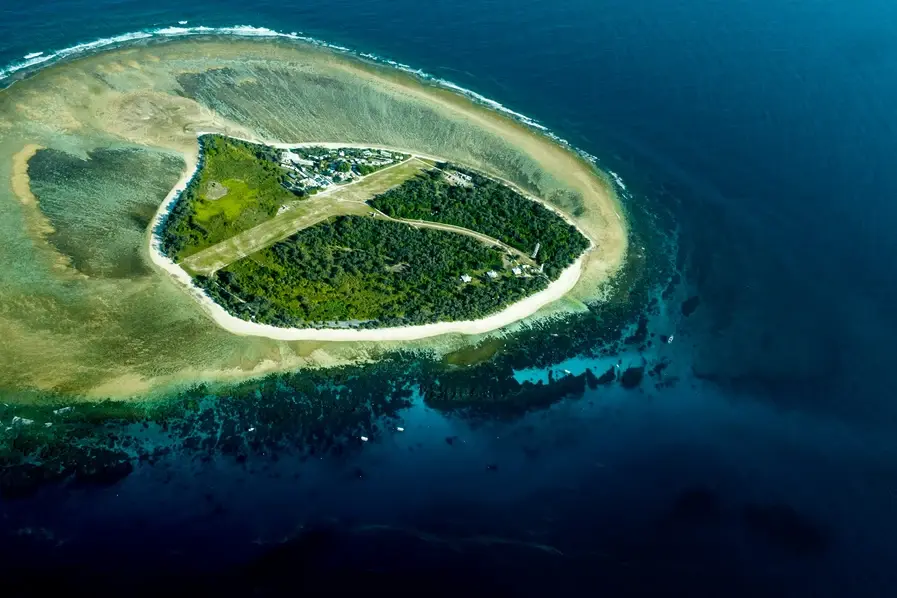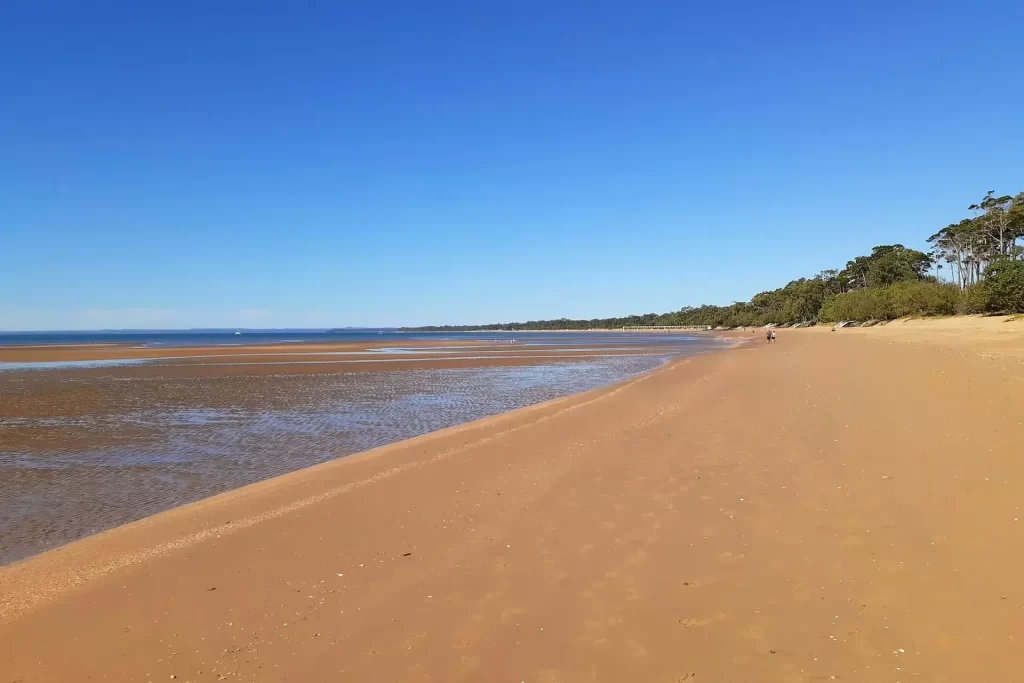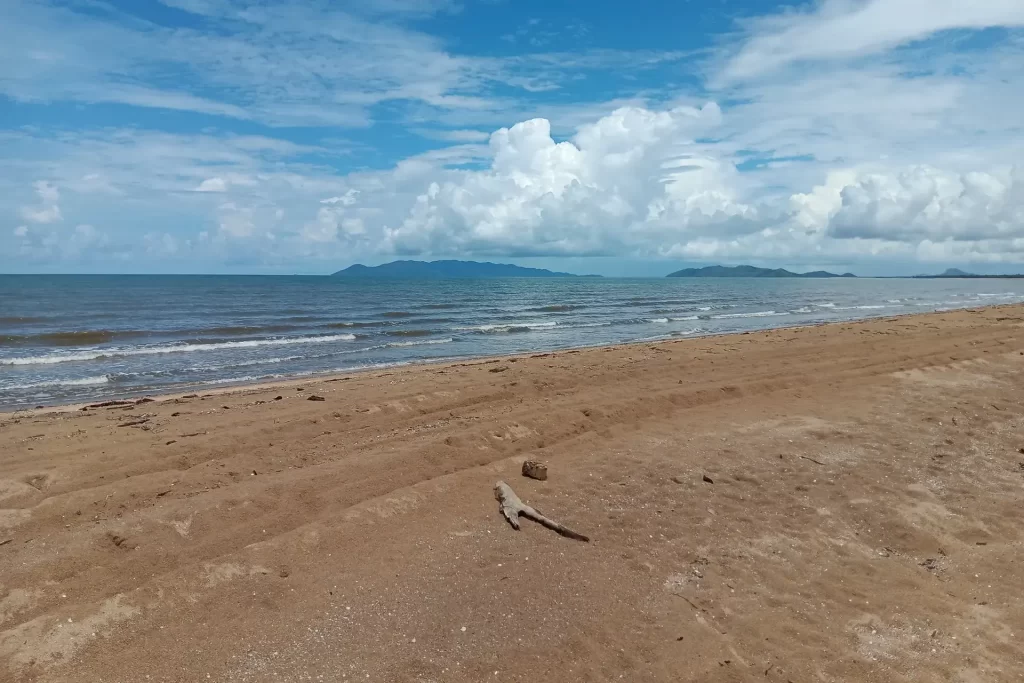
According to Queensland.com, there are over 900 islands strewn across the Sunshine State’s 7000 km stretch of coastline. Well, in my opinion, Lady Elliot Island is right up there with the best of them.
Situated about 85 km northeast of Bundaberg, this little slice of paradise is the southernmost coral cay in the Great Barrier Reef. Lying within the Coral Sea, it forms part of the Capricorn and Bunker Group of islands, and is easily accessed from the mainland.
What sets the Island apart from its contemporaries is it extraordinary beaches that are made exclusively of crushed coral, and its incredible marine life which comprises over 1200 species, most notably manta rays population.
As the island only covers an area of 45 hectares you can easily visit it on a day trip where you can go enjoy top quality snorkelling or diving just off the beach. However, if you really want to immerse yourself in the magic of the island, you can stay for one or more nights at Lady Elliot Island in its eco certified Accommodation.
How To Get To Lady Elliot Island
What makes Lady Elliot Island one of the best islands in Queensland to visit is that it is pretty easy to get to.
The only mode of transport you can take to get there is a small chartered aircraft which you can catch from Bundaberg, Hervey Bay, Brisbane or the Gold Coast. This flight is arranged by the reservations desk at the Lady Elliot Island Eco Resort and is organised when you book your accommodation.
The flying departure locations and durations are as follows:
Bundaberg flights leave from the Bundaberg Regional Airport (BDB) and take about half an hour to complete
If leaving from Hervey Bay Airport (HVB) the flight time will take you about 40 minutes
From Brisbane you'll depart from the Redcliffe Aerodrome (RCL) it will take roughly 80 minutes
Those flying from the Gold Coast will set off from the Seair Pacific hangar, about 1.5 km north of the Gold Coast Airport (OOL). It will take about two hours to get there
If you do intend to got to Lady Elliot Island, you should be aware that visitors are not permitted to drive on the island.
Best time to visit Lady Elliot Island
Throughout the year, Lady Elliot experiences several spectacular wildlife events. So, which one you want to see will influence when the best time for you to go there will be.
For instance, the star attraction of Manta rays is most prevalent between June and September, when their number is at its highest concentration. Also in September is the start of the nesting season for seabirds. While you have more chance of seeing large sea turtles between November and February, and thousands of baby turtles hatching on its pristine beaches between February and April.
Outside of these events, the high season typically runs between December and February and the low season from June to August.
Things To Do on Lady Elliot Island
Whilst on the island, all the main experiences and activities you might want to do can be booked through Lady Elliot Island Eco Resort.
One of the most popular things to do is swim with a manta ray which will be an experience you will never forget. Between November and February, you can also choose to go on a guided tour to see turtle hatchings, while there are around 20 dive sites you can explore via scuba diving or snorkelling in this part of the Southern Great Barrier Reef.
If you would prefer to stay on dry land you can walk along the beaches, or explore two walking trails that showcase the island’s unique biodiversity that incorporates coast and rainforest.
Alternatively, you can explore the reef on foot or by night, and take in gorgeous sunsets from the shoreline.
Where to Stay on Lady Elliott Island
If you want to stay for a night or a few, the only place you can do this on the island is at The Lady Elliot Island Eco Resort.
Those who book accommodation here will receive a bona fide eco-tourism experience. In line with its eco-friendly nature you’ll find no radios, TV or public telephones as everything is geared up to a digital detox. (There is limited Wi-Fi in the restaurant though).
You will, however, find comfortable rooms in the form of units, tents, including glamping, or cabins – some of which are just metres from the lagoon. Your overnight accommodation rate will vary depending on the season in which you visit. Though it will include a full buffet for breakfast and dinner.
If you do stay here you will be charged an EMC fee (Environmental Management Charge) which is paid by all visitors towards the conservation and day-to-day management of the Great Barrier Reef. Currently this fee is $8 per person per day for everyone over four years old, although the maximum charge a person will be issued with is $24.
Tours and Excursions
Want to see more of the Bundaberg Region away from Lady Elliot Island? Here are some terrific tours you can book.



